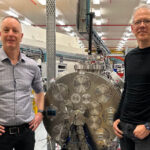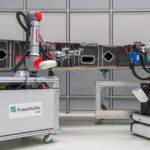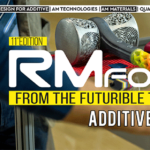NASA has selected proposals for the creation of two multi-disciplinary, university-led research institutes that will focus on the development of technologies critical to extending human presence deeper into our solar system. The new Space Technology Research Institutes (STRIs) created under these proposals will bring together researchers from various disciplines and organizations to collaborate on the advancement of cutting-edge technologies in bio-manufacturing and space infrastructure, with the goal of creating and maximizing Earth-independent, self-sustaining exploration mission capabilities. “NASA is establishing STRIs to research and exploit cutting-edge advances in technology with the potential for revolutionary impact on future aerospace capabilities,” said Steve Jurczyk, associate administrator for NASA’s Space Technology Mission Directorate in Washington. “These university-led, multi-disciplinary research programs promote the synthesis of science, engineering and other disciplines to achieve specific research objectives with credible expected outcomes within five years. At the same time, these institutes will expand the U.S. talent base in areas of research and development with broader applications beyond aerospace.” Each STRI will receive up to $15 million over the five-year period of performance. The selected new institutes are Institute for Ultra-Strong Composites by Computational Design (US-COMP) and Center for the Utilization of Biological Engineering in Space (CUBES).
Institute for Ultra-Strong Composites by Computational Design (US-COMP)
Affordable deep space exploration will require transformative materials for the manufacturing of next-generation transit vehicles, habitats, power systems, and other exploration systems. These building materials need to be lighter and stronger than those currently used in even the most advanced systems.
US-COMP aims to develop and deploy a carbon nanotube-based, ultra-high strength, lightweight aerospace structural material within five years. Success will mean a critical change to the design paradigm for space structures. Through collaboration with industry partners, it is anticipated that advances in laboratories could quickly translate to advances in manufacturing facilities that will yield sufficient amounts of advanced materials for use in NASA missions.
Results of this research will have broad societal impacts, as well. Rapid development and deployment of the advanced materials created by the institute could support an array of Earthly applications and benefit the U.S. manufacturing sector.
US-COMP is a multidisciplinary team of 22 faculty members led by Gregory Odegard, principal investigator at the Michigan Technological University, in partnership with Florida State University, University of Utah, Massachusetts Institute of Technology, Florida A&M University, Johns Hopkins University, Georgia Institute of Technology, University of Minnesota, Pennsylvania State University, University of Colorado and Virginia Commonwealth University. Industrial partners include Nanocomp Technologies and Solvay, with the U.S. Air Force Research Lab as a collaborator.
These awards are funded by NASA’s Space Technology Mission Directorate, which is responsible for developing the cross-cutting, pioneering, new technologies and capabilities needed by the agency to achieve its current and future missions.
Center for the Utilization of Biological Engineering in Space (CUBES)
As NASA shifts its focus from low-Earth orbit to deep space missions, the agency is investing in the development of technologies that will allow long-duration mission crews to manufacture the products they need, rather than relying on the current practice of resupply missions from Earth. The CUBES institute will advance research into an integrated, multi-function, multi-organism bio-manufacturing system to produce fuel, materials, pharmaceuticals and food.
Credits: NASA













